There’s something unforgettable about the first time a lion cub looks up at you, wide-eyed and trembling, completely dependent on your care. In Botswana, a country where wildlife and people exist side by side, raising an orphaned lion cub is both an honor and a wild adventure. It’s not just about bottle-feeding and cuddles—though there’s plenty of that—but about understanding the pulse of the savannah and the heartbeat of a cub who has lost everything. The days are unpredictable; the nights, sometimes sleepless. Each moment is a delicate dance between hope and uncertainty, but it’s also filled with moments that fill your heart with awe and gratitude. This journey is a window into the secret world of lions, and a reminder of how fragile and fierce life can be on the African plains.
The Magic of First Contact

When you first meet an orphaned lion cub, it’s like holding a secret piece of the wild in your arms. The cub’s fur is softer than you’d imagine—a little like a plush toy, but alive with nervous energy. Its eyes, too big for its face, watch you with a mix of fear, curiosity, and a flicker of hope. The first touch is always gentle, cautious; you’re strangers learning each other’s language. There’s a sudden understanding that this tiny creature, who should be tucked against its mother’s side, is now looking to you for comfort. In those first moments, every human instinct to nurture and protect kicks in. It’s humbling to become the stand-in for a lioness, and the weight of responsibility settles on your shoulders. You realize this is not just a rescue—it’s the beginning of a bond that will shape both your lives.
Bottle-Feeding Under African Skies
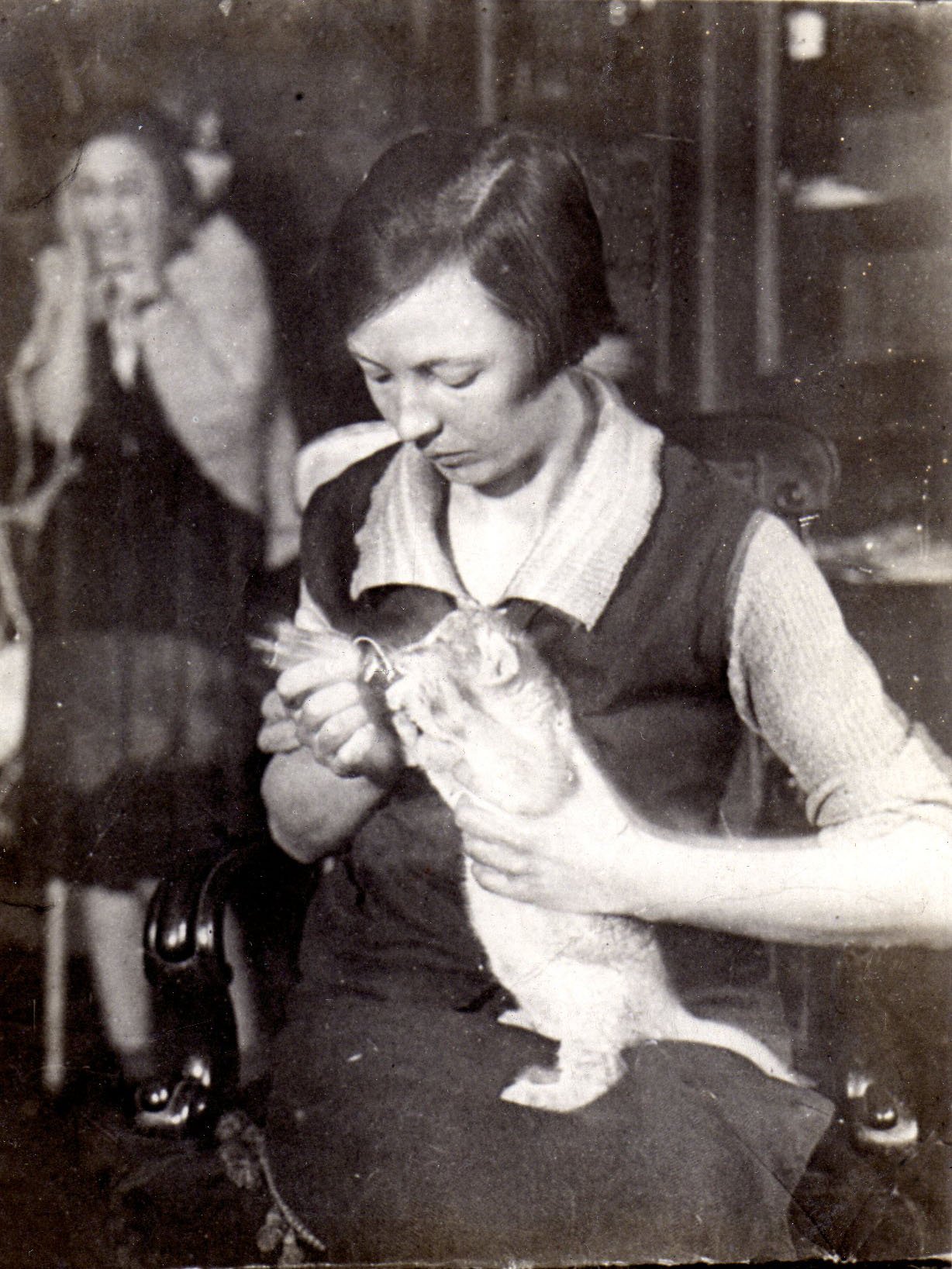
Feeding a lion cub isn’t as simple as popping a bottle in its mouth. There’s an art to mixing the right formula, getting the temperature just right, and holding the bottle at the perfect angle. The cub’s tiny paws knead your arm, just like a kitten, as it suckles greedily. Under the wide Botswana sky, each feeding feels sacred—a moment that connects you not only to the cub but to the ancient rhythm of the savannah. Sometimes, the cub is impatient and a bit clumsy, milk dribbling onto its whiskers. Other times, it’s so hungry it growls with surprising ferocity. Every feeding is a small victory, a reminder that life persists even in the face of loss. And as the sun sets and the stars emerge, you realize these quiet moments are where trust is quietly built, sip by sip.
The Wild Serenade of Night

Nights in Botswana are alive with sound: crickets chirp, hyenas whoop, and sometimes, far off, lions roar. Sleeping near an orphaned cub means sharing the quiet fears and hopes that come with darkness. The cub might whimper, missing its mother, and you become its comfort, humming softly or gently stroking its back. Sometimes, you’ll hear the deep, distant calls of wild lions—a reminder of where your little charge truly belongs. The night tests your patience and compassion. Every strange sound puts you on alert; you watch over the cub as a parent would, listening for any sign of distress. It’s both lonely and intimate. These nocturnal hours teach you the value of presence—sometimes, just being there, breathing quietly together, is enough to make the world feel a little safer for both of you.
Paws and Personalities

Lion cubs may all look similar at first glance, but each one quickly reveals its own quirks. Some are bold, pouncing on your shoelaces or chasing after fluttering leaves, while others are shy, preferring to peer out from behind your legs. Their paws are huge compared to their bodies, a promise of the power they’ll one day wield. Watching them bat at toys or stumble through the grass is endlessly entertaining. It’s like seeing the future king or queen of the savannah figuring out how to be a lion, one awkward step at a time. You celebrate each milestone: the first confident growl, the first playful bite, the first time they dare to explore a little farther without looking back. Every cub is a unique story unfolding, and getting to know their personalities is one of the purest joys of raising them.
The Language of Whiskers and Tails
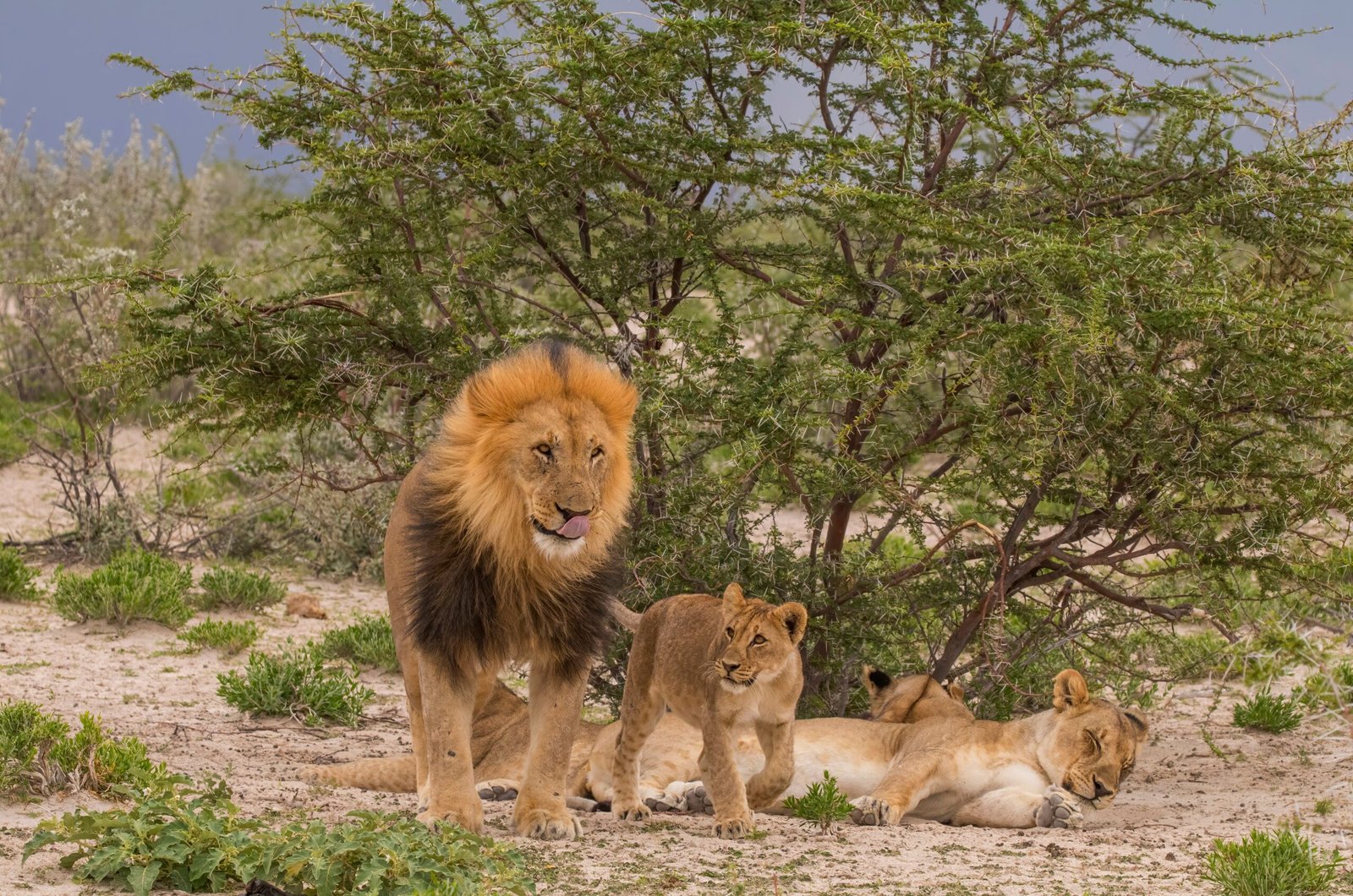
Lion cubs are excellent communicators, even before they master their roar. Their tiny tails flick when they’re excited or anxious, and their whiskers twitch with curiosity. You learn to read their moods through body language: flattened ears signal fear, a slow blink means trust, and a gentle headbutt is the ultimate sign of affection. Sometimes, the cub will press its nose against your hand, breathing you in, as if memorizing your scent for comfort. These silent exchanges build a bridge between species, a way of saying “I’m here, you’re safe.” It’s a crash course in empathy, and you start to understand the subtle cues that mean everything to a young lion. This unspoken dialogue becomes the foundation of your relationship, shaping every interaction in ways that words never could.
Grooming Rituals and Fuzzy Bellies
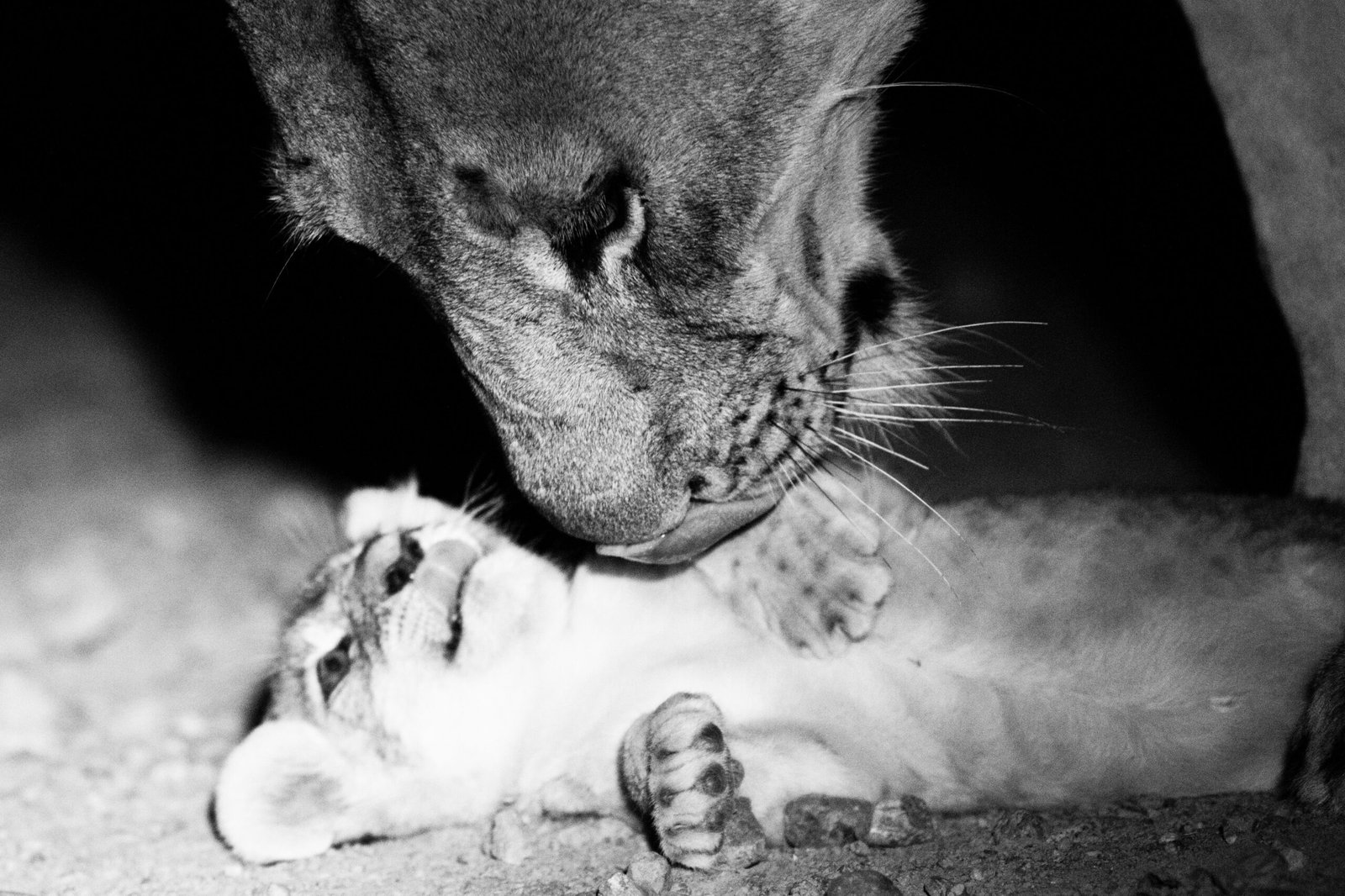
There’s something heart-melting about a lion cub rolling onto its back, paws in the air, trusting you enough to show its vulnerable belly. Grooming becomes a shared ritual—sometimes, you brush out bits of grass from their fur, or gently clean their eyes with a soft cloth. The cub, in turn, might lick your hand or nibble playfully, copying the grooming behavior it would have learned from its mother. These moments are more than just hygiene—they’re about building trust and affection. The cub’s purrs vibrate through your hands, warm and reassuring. Grooming is a language of love, a way to say, “You belong.” In these quiet times, you’re reminded that even the fiercest creatures begin life in a state of utter dependence, needing care and kindness to thrive.
Learning to Play Like a Lion

Playtime is serious business for a lion cub. What looks like harmless fun—pouncing, stalking, wrestling with a raggedy toy—is actually practice for the skills they’ll need as adults. You become both playmate and teacher, encouraging the cub to chase, leap, and even practice their little growls. Sometimes, a game gets too rough and you end up with a scratch or two—but it’s all part of the learning curve. Watching a cub discover its strength and coordination is both hilarious and inspiring. Each tumble and triumph marks a step toward independence. Play is how lions learn to survive, and as their stand-in parent, you celebrate every clumsy leap and victorious pounce. It’s a reminder that even the most majestic predators start off as playful, awkward bundles of energy.
Milk Teeth and Tiny Roars

Lion cubs go through teething just like human babies, and it’s both adorable and a little chaotic. They chew on everything—your fingers, their own tails, anything they can get their jaws around. Sometimes, you catch them trying to roar, but what comes out is more like a squeaky yawn than a fearsome growl. Those tiny teeth are sharp, though, and you quickly learn to keep your hands clear during a particularly energetic play session. The emergence of their first real roar is a milestone worth celebrating. It’s a sound that carries both pride and a touch of sadness, knowing that each new tooth and every stronger growl brings them closer to the wild world that awaits. These little milestones are bittersweet reminders that your time together is precious and fleeting.
The Challenges of Health and Healing

Orphaned lion cubs are vulnerable to illness in ways wild-born cubs aren’t. Without their mother’s immunity and constant care, they’re prone to infections, parasites, and digestive troubles. Sometimes, you spend sleepless nights nursing a feverish cub or coaxing it to eat when its appetite fades. There are anxious trips to the local wildlife vet and tense moments waiting for a diagnosis. You learn a lot about resilience—both yours and the cub’s. Each recovery feels like a miracle; every setback, a personal heartbreak. The cub’s health becomes your obsession, and every wag of its tail or sparkle in its eyes is a cause for relief. Through it all, you’re reminded of how closely survival is tied to compassion and vigilance, and how small acts of care can tip the balance between life and loss.
The Role of Surrogate Siblings

Sometimes, orphaned lion cubs are lucky enough to be raised alongside other cubs or even friendly domestic animals. Watching them interact is a lesson in adaptability and the universal language of play. They tumble and wrestle, forming bonds that echo the social lives they’d have in the wild. Surrogate siblings offer comfort and competition, teaching the cubs important lessons about sharing, boundaries, and trust. Occasionally, a cub will snuggle up to a puppy or chase after a goat, blending the lines between species in the most heartwarming way. These surrogate friendships fill the gaps left by absent lion family, providing the socialization that’s vital for healthy development. It’s a daily reminder that the need for connection is universal—and sometimes, family chooses us, not the other way around.
Curiosity and the Call of the Wild

As the cub grows, so does its curiosity about the world beyond your care. It sniffs at the edges of its enclosure, watches birds with laser focus, and perks up at every rustle in the grass. You see the wildness flicker in its eyes—a longing for the life it was meant to lead. Exploration is vital for its mental and physical growth, so you create safe spaces for the cub to roam, climb, and investigate. Each discovery—a beetle, a fluttering butterfly, a distant scent—sparks a new surge of excitement. You cheer these moments, even as you quietly ache at the thought of letting go. The wild is calling, and you know your role is to prepare the cub for the freedom it deserves, no matter how much you’ll miss its company.
The Art of Letting Go
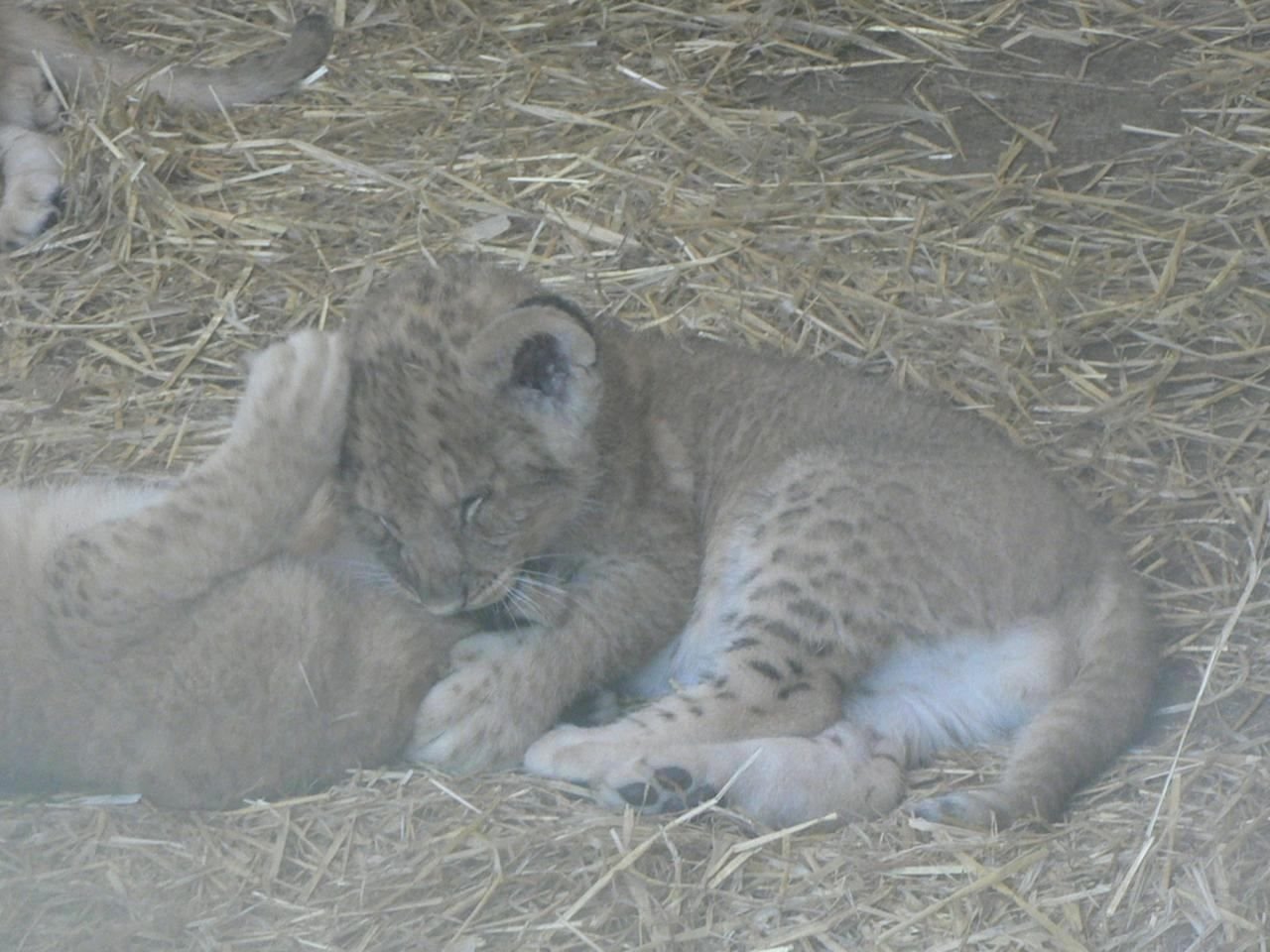
Perhaps the hardest lesson in raising an orphaned lion cub is learning to let go. From day one, you know your ultimate goal is not to keep, but to prepare the cub for independence. As it grows stronger and more confident, you start to step back, letting it solve problems and explore on its own. The first time it catches a bug or stalks a shadow without your help feels like a small heartbreak—proof that your job is working. Letting go is bittersweet. You feel proud, but also a little lost, knowing your presence will soon be just a memory in the cub’s wild life. This process, though difficult, is the greatest act of love you can give—a gift of freedom, and a hope for a wild future.
Lion Cubs and Local Community

Raising a lion cub in Botswana isn’t just a private journey; it ripples through the local community. Neighbors, elders, and children often become invested in the cub’s story, stopping by to check on its progress or share advice. Some bring gifts—like fresh goat’s milk or handmade toys—while others simply offer stories of lions they’ve encountered over the years. These interactions create a sense of shared stewardship, reminding everyone that wildlife belongs to the whole community, not just a lucky few. The cub becomes a symbol of hope and resilience, inspiring conversations about conservation and coexistence. It’s a powerful lesson that caring for one animal can foster compassion and action in many hearts, strengthening the bond between people and the natural world around them.
Conservation in Every Cuddle

Caring for an orphaned lion cub is more than an act of kindness—it’s a powerful statement about conservation. Each cuddle, every sleepless night, is a small rebellion against the forces threatening wildlife: habitat loss, poaching, and human-wildlife conflict. By nurturing a single life, you’re investing in the future of an entire species. The cub’s story becomes a beacon, drawing attention to the challenges lions face across Africa. It inspires visitors and locals alike to think about their own role in protecting these magnificent animals. Conservation isn’t always about grand gestures; sometimes, it’s as simple—and as profound—as holding a cub close and promising to do your best. In every moment of care, hope for a wilder, safer future is quietly renewed.
When a Cub Becomes a Lion

There comes a day when the cub you once cradled in your arms stands tall, muscles rippling beneath its golden coat, eyes sharp and regal. The transformation is staggering. You remember the wobbly steps, the tiny roars, and now see a predator ready to claim its place in the wild. Watching this change is a mix of pride and awe. You marvel at nature’s design, at how play and patience have shaped a vulnerable orphan into a confident lion. The process is slow, marked by setbacks and triumphs, but the end result is breathtaking. It’s a reminder that every beginning holds the promise of greatness, and that even the smallest, most fragile lives can grow into something truly magnificent with the right support.
The Smell and Sound of the Savanna
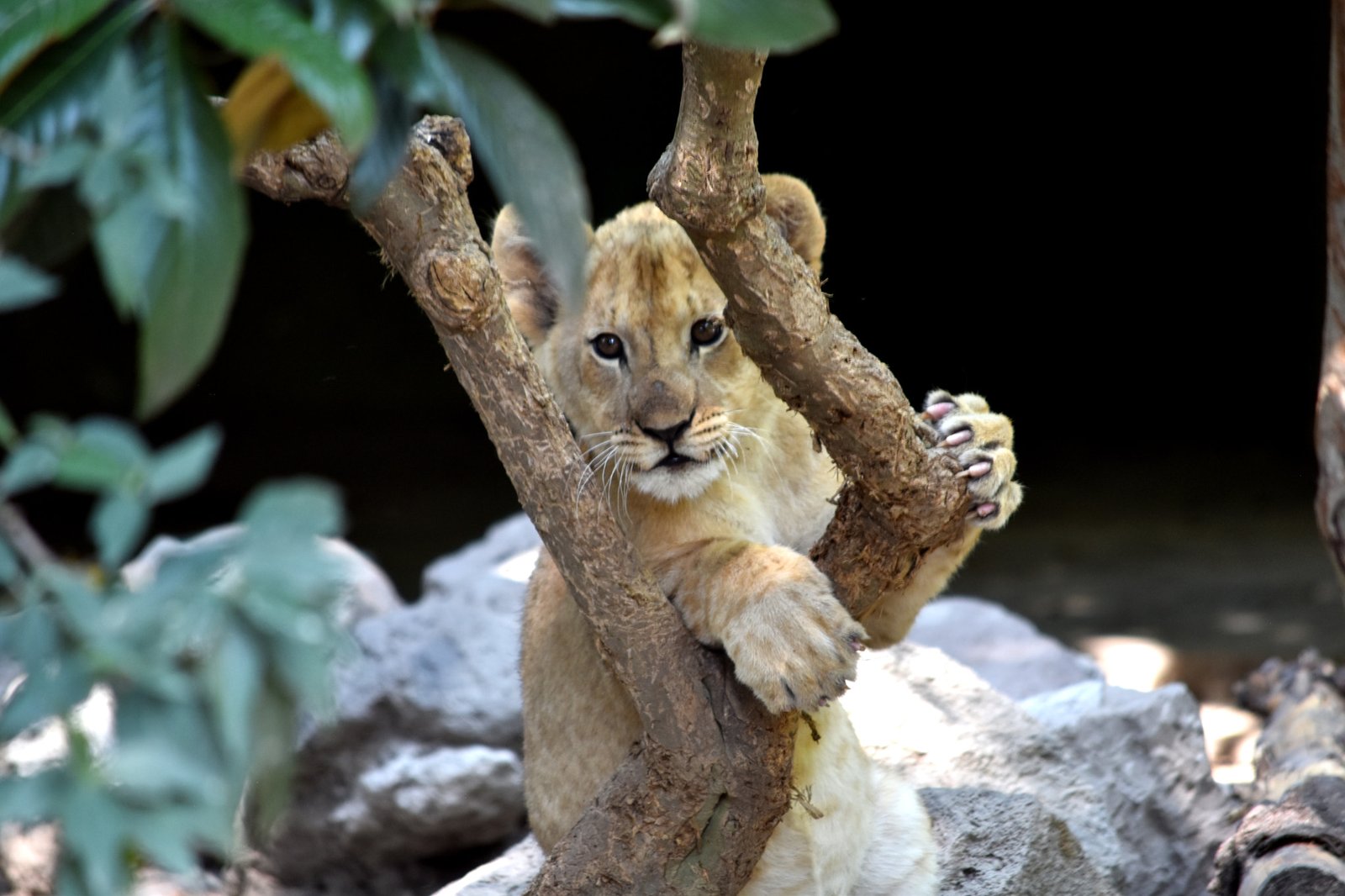
Living in Botswana with a lion cub immerses you in the sensory world of the savanna. The air is thick with the scent of dry grass, wildflowers, and sometimes, the musk of nearby herds. Every morning brings a symphony of birdsong, punctuated by the distant calls of other predators. The cub learns to listen, nose twitching as it catalogs new smells and sounds. You find yourself tuning in, too, attuned to the subtle shifts in the landscape. The environment is both a classroom and a playground, shaping the cub’s instincts and your own sense of wonder. This shared sensory experience deepens your connection, grounding you in the rhythm of the wild and reminding you that you’re both just small parts of a much bigger, beautiful world.
The Gentle Power of Patience

Patience is your closest companion when raising a lion cub. Progress often comes in fits and starts—one day, the cub is brave and curious; the next, timid and clingy. There are setbacks: illnesses, injuries, or days when nothing seems to go right. You learn to celebrate tiny victories and let go of expectations. Patience isn’t passive; it’s an active choice to keep showing up, to offer comfort, and to trust the process. The cub senses your calm and responds in kind, growing more confident with each patient moment. Over time, you come to realize that patience is the foundation for all growth—yours and the cub’s alike. It’s a lesson that lingers, shaping how you approach challenges long after your time with the lion has passed.
Adapting to the Unexpected
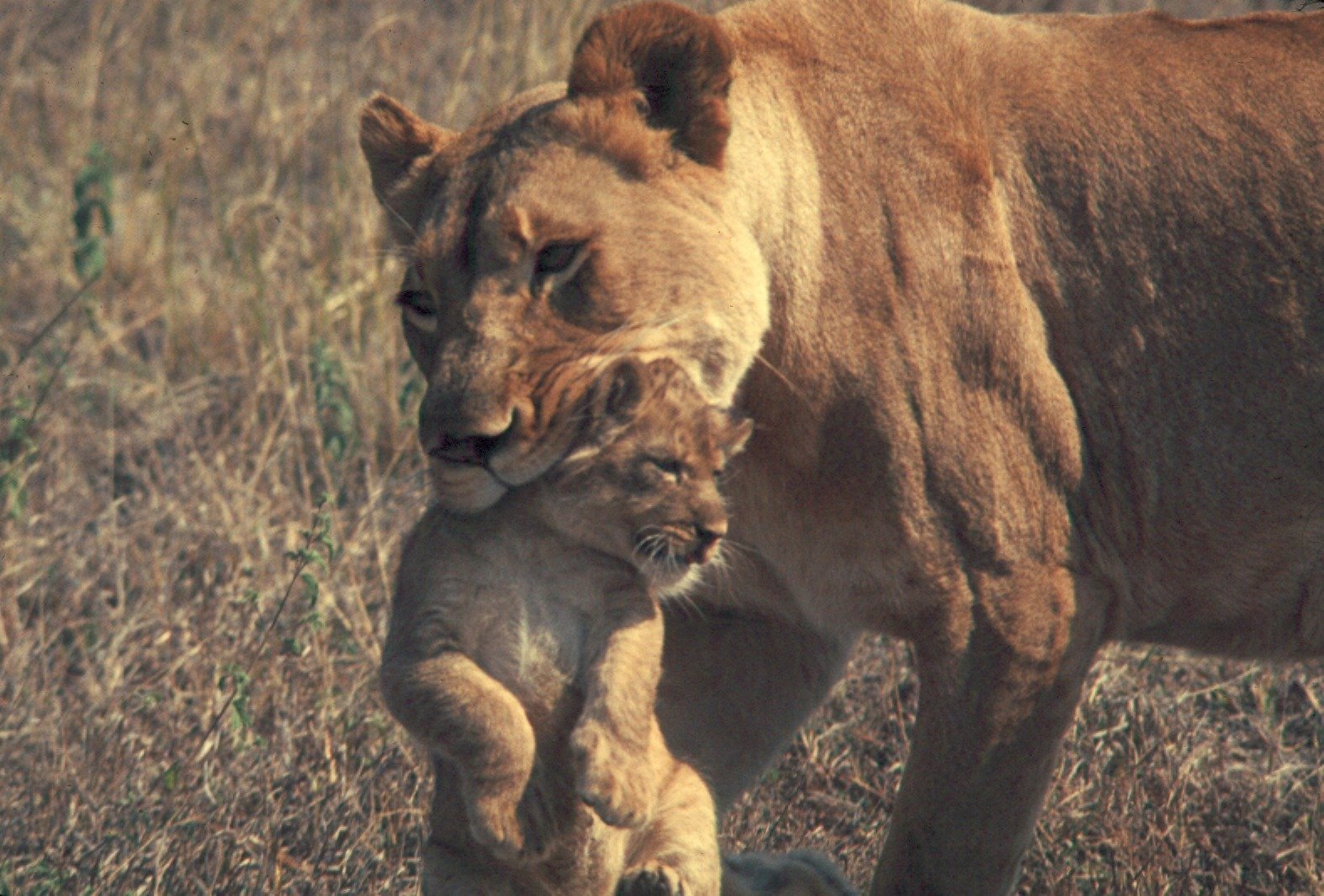
No two days are ever the same when you’re caring for a lion cub. Plans change at a moment’s notice—an unexpected storm, a sudden health scare, or the discovery of a new favorite hiding spot can upend your routine. Flexibility becomes second nature. You learn to let go of control, to improvise, and to find joy in the surprises. Sometimes, the cub will teach you more than you teach it, revealing resilience, humor, or courage in the face of the unknown. These unpredictable moments keep you humble, reminding you that life—especially wild life—can’t be neatly organized or managed. Embracing the unexpected becomes a skill, and you carry that adaptability with you into every part of your life.
From Vulnerability to Strength

Witnessing a lion cub’s journey from helplessness to strength is nothing short of miraculous. At first, the cub is fragile, depending on you for everything. But as days pass, it grows bolder, more agile, and fiercely independent. The transformation is gradual—a little more confidence in its stride, a stronger bite, a deeper growl. Each milestone fills you with pride and, sometimes, a pang of nostalgia for those early, tender days. This process mirrors life itself: vulnerability is not a weakness but a stage, one that gives way to resilience and power. Watching the cub grow teaches you to respect the journey, to honor the struggles that shape us, and to celebrate the strength that emerges from even the most uncertain beginnings.
The Bittersweet Joy of Goodbyes

Saying goodbye to a lion you’ve raised is one of the hardest things you’ll ever do. The bond you’ve built is deep, forged through sleepless nights, shared laughter, and countless small victories. Yet, you know your greatest gift is to let the lion go—to trust that you’ve prepared it for life in the wild. The farewell is full of mixed emotions: sadness, pride, and hope. Sometimes, you’ll catch yourself looking out over the savanna, wondering where your lion is, whether it remembers you. The ache lingers, but so does the joy of knowing you played a part in its story. Goodbyes are never easy, but they’re a testament to the love and effort you poured into every day together.
The Ever-Present Threats

Even as you nurture a lion cub, the threats to its future are never far away. Habitat loss, poaching, and conflict with humans loom large, shaping every decision you make. You become acutely aware of how fragile the balance is—one careless mistake, one act of violence, can undo years of work. This awareness fuels your commitment to advocacy and education. The cub’s survival becomes a symbol, a rallying point for bigger conversations about conservation. Each challenge is a call to action, a reminder that raising a lion is just one part of a much larger struggle to protect these incredible animals for generations to come. The threats are real, but so is the hope that change is possible, one cub at a time.
The Wisdom of the Wild

The wild has a way of teaching lessons you can’t find in any book. Watching a lion cub navigate its world, you learn about resilience, curiosity, and the importance of community. The savanna is both harsh and beautiful—a place where survival depends on adaptability and courage. The cub’s instincts are sharp, but its need for guidance is just as strong. You find yourself humbled by nature’s wisdom, realizing that every creature, no matter how fierce, begins life needing care and protection. These lessons stay with you, shaping the way you see the world and your place within it. The wild is a teacher, and its lessons are both humbling and inspiring, woven into every moment you share with your lion cub.
Finding Yourself in the Lion’s Eyes
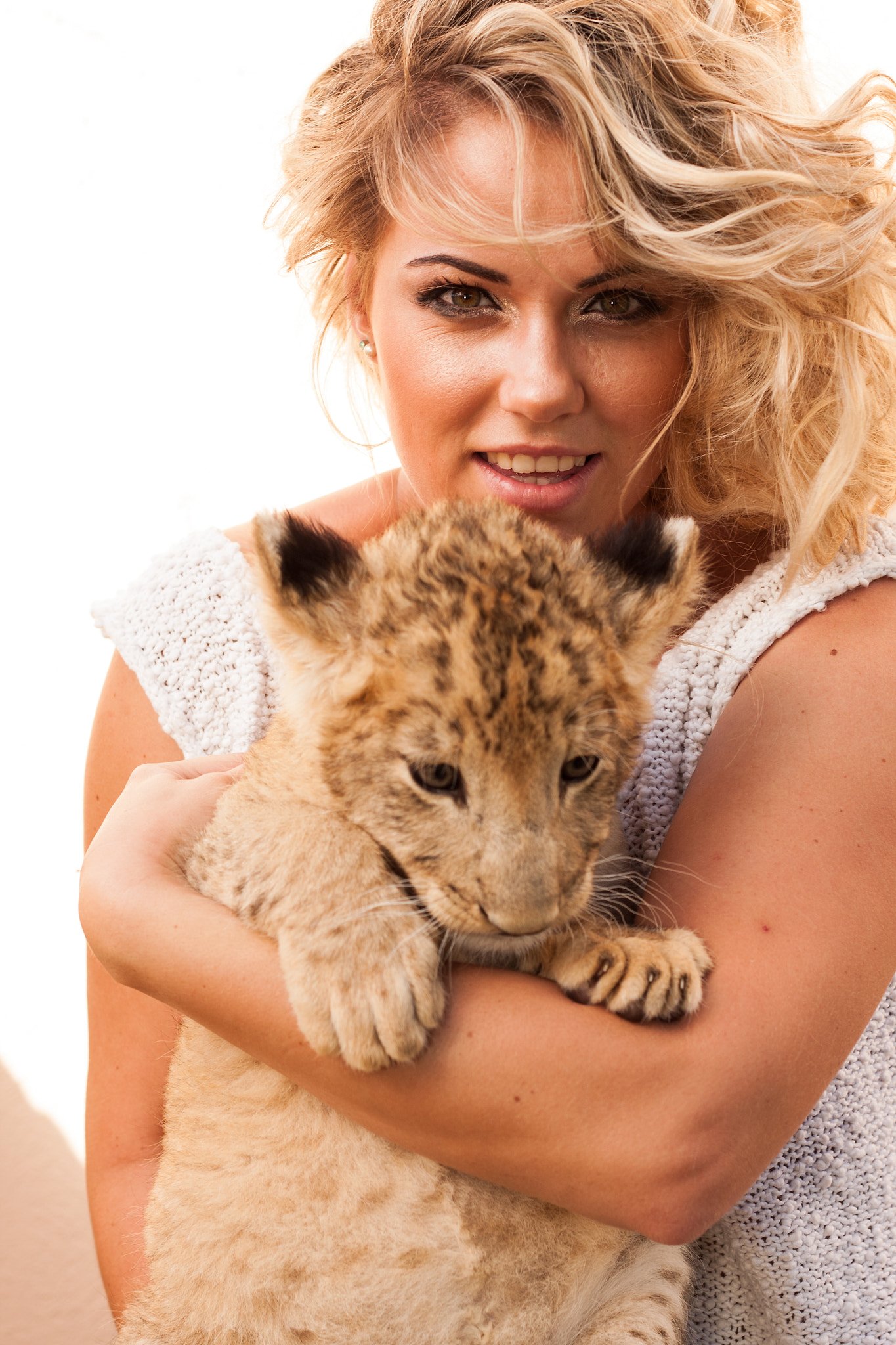
Raising a lion cub is as much a journey of self-discovery as it is an act of care. In those quiet moments, looking into the cub’s golden eyes, you see your own hopes, fears, and dreams reflected back. The bond you form is more than just affection—it’s a reminder of our shared vulnerability and the deep connections that bind all living things. You learn to trust, to let go, and to love without expectation. The experience changes you, leaving you more empathetic, patient, and courageous. In the end, you realize that the real gift isn’t just helping the cub survive, but finding a new sense of purpose and wonder in its company. The lion’s eyes become a mirror, showing you the strength and kindness you carry within.
The Ripple Effect of Compassion

One act of kindness can ripple through a community, a landscape, even a species. Caring for an orphaned lion cub in Botswana is a powerful example of this truth. Your compassion sparks curiosity, inspires others to act, and creates a legacy that stretches far beyond your own experience. Visitors, neighbors, and children see your efforts and are moved to care for other animals, to protect wild spaces, to learn and teach in turn. The cub’s journey becomes a shared story, a testament to the power of empathy and action. Every small gesture—every bottle fed, every word of encouragement—adds up to real change. In this way, the simple act of raising a lion cub becomes a force for good, touching lives in ways you can only begin to imagine.
Conclusion

The experience of raising an orphaned lion cub in Botswana is a tapestry woven from moments of heartbreak and hope, challenge and triumph. Each day spent with these remarkable creatures deepens our appreciation for the wild, reminding us how precious and vulnerable life can be. Lions, with their fierce independence and tender beginnings, show us the beauty of resilience and the importance of compassion. They invite us to see the world through new eyes—curious, brave, and open to wonder. In caring for a single cub, we glimpse the vast, interconnected web of life that binds us all. The journey is never easy, but it’s always worth it. Would you answer the call of the wild if it looked up at you with golden eyes?

Suhail Ahmed is a passionate digital professional and nature enthusiast with over 8 years of experience in content strategy, SEO, web development, and digital operations. Alongside his freelance journey, Suhail actively contributes to nature and wildlife platforms like Feline Fam, where he channels his curiosity for the Feline into engaging, educational storytelling.
With a strong background in managing digital ecosystems — from ecommerce stores and WordPress websites to social media and automation — Suhail merges technical precision with creative insight. His content reflects a rare balance: SEO-friendly yet deeply human, data-informed yet emotionally resonant.
Driven by a love for discovery and storytelling, Suhail believes in using digital platforms to amplify causes that matter — especially those protecting Earth’s biodiversity and inspiring sustainable living. Whether he’s managing online projects or crafting wildlife content, his goal remains the same: to inform, inspire, and leave a positive digital footprint.






